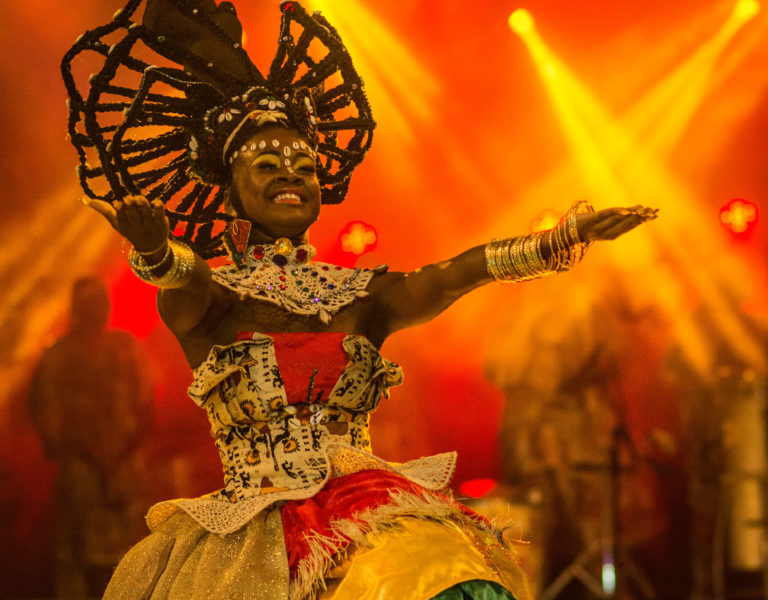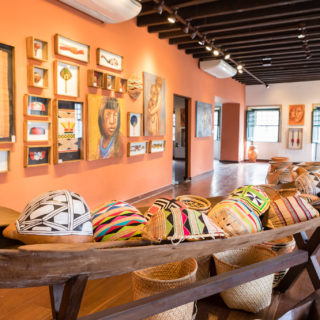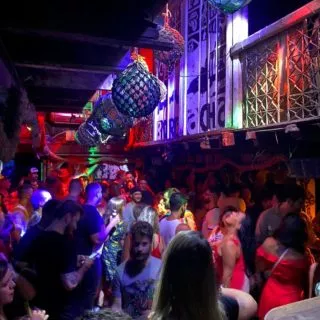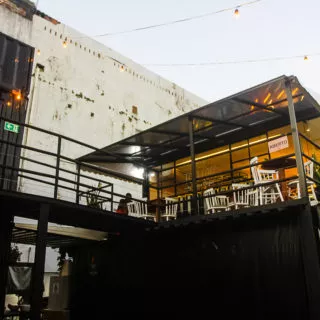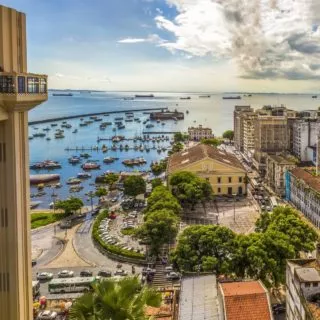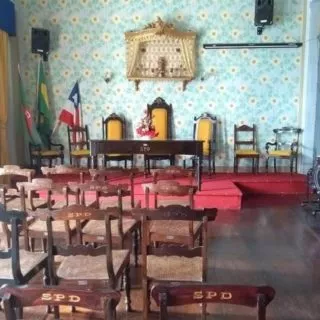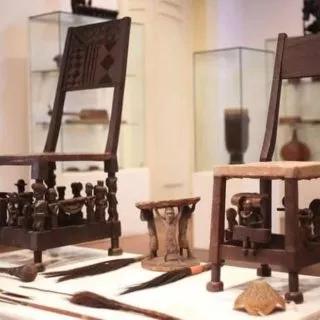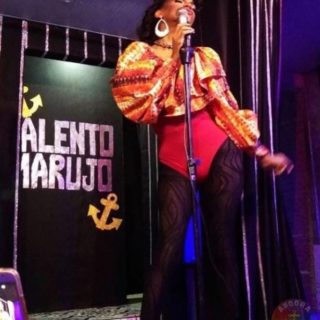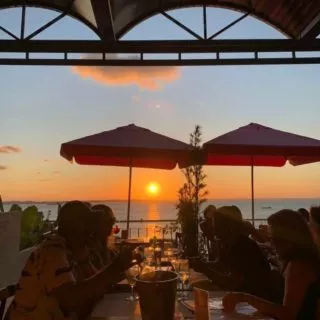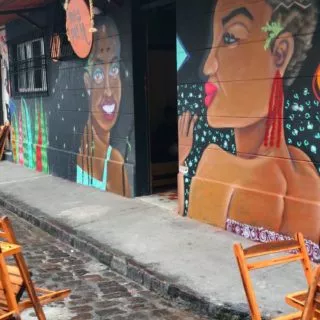
Among goddesses and queens
It’s not by chance that the word “Liberdade” (Freedom) in Portuguese is feminine. Feminine as strength, as house, as senzala. On Saturday, January 20, Senzala do Barro Preto opened its doors for the 39th edition of the Night of Black Beauty. But at night, the beauty, the black, and all the female strength of the Ilê Aiyê goddesses crossed doors and walls and took over all of Liberdade.
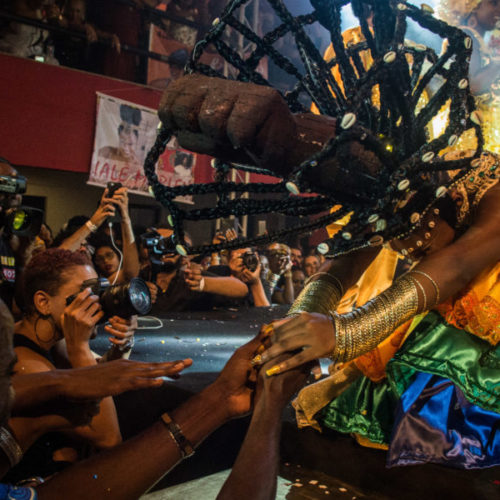
As it happens every year, Curuzu Street was full of people, mostly black. The bars on the way to Ilê had the TVs on, showing the whole party. By cell phones, the population followed the stories of those inside, and the narrow, colorful streets were full of support posters. Housewives rented parking spaces, restaurant owners made more beans, owners of themselves paraded their hair crowns and turbans. In Liberdade, women are the owners of the world, day and night.
The Night of Black Beauty is – along with Carnival Saturday – one of the most important dates of the year for Ilê Aiyê. The “negroes’ house” had a party mood, with the performances of eight of the 16 candidates for the title of Goddess of Ebony. In the break between the first and second group, in front of the jurors, the Senzala stage opened a crack in time and all those who were there were transported to an ancestral place. It was the voice and presence of Sir Mateus Aleluia, a living entity, singing for Iemanjá. “Ladies Bahias,” the black women came in, dressed in clarity and blessed a child who received a bath of leaves and flowers, right there, in the core of axé. Life, after all, is like this: this spectacle that happens while we blink incredulously in the midst of everything. People’s miracles, like those that happen every day, like the triviality of one more summer night in Bahia.
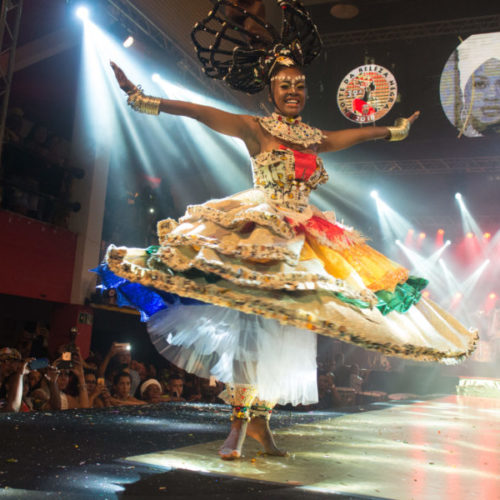
These are things from Ilê, which after the spectacular break, brought the eight candidates who had not yet presented themselves to the people. Goddesses and queens, several daughters of Iansan and Oxum, coming from Nazaré, Cabula, Carmo and even Georgia, in the United States. But when she came in, it was different. Jéssica Nascimento came already crowned. In a few minutes, she showed what makes a black woman resist and exist: self-confidence. Jessica walked on the stage to the front and, before the public, did the impossible: stopped the time. Raised arm, proud posture, queenly look. She stayed like this for a few seconds, dominant, full of herself and her world. Owner and divine. And no one believed, but everyone saw one more of Ilê’s miracles. The queen smiled already as a goddess, continued her dancing, and even the ones who were far away cheered, for in Ilê the subjects are also kings and queens. People’s miracles. Ilê’s miracles.
Michele Louvores
Content Producer
Supervision:
Fernanda Slama
Content Coordinator
We’ve prepared a perfect playlist for this experience. Listen now!

